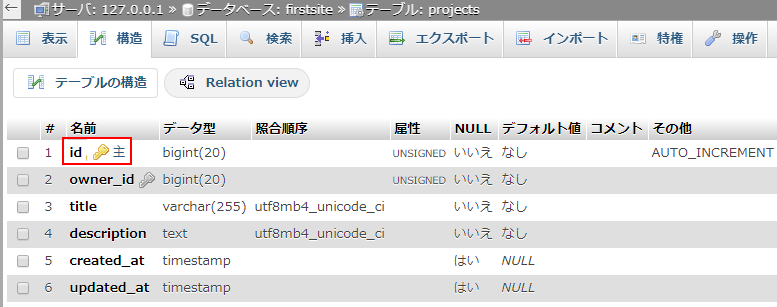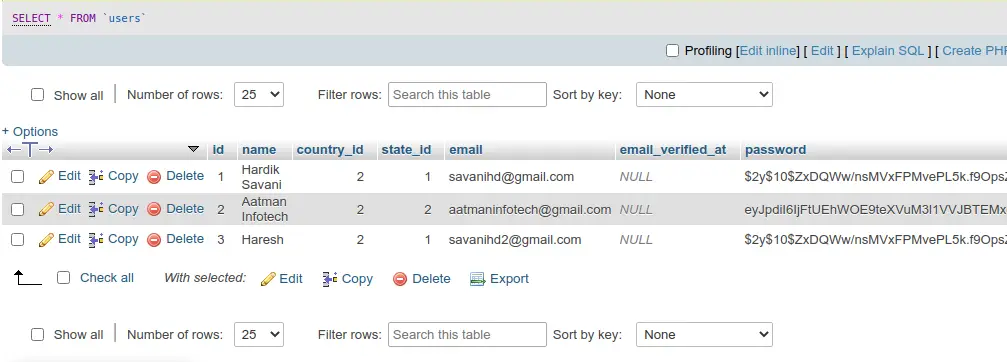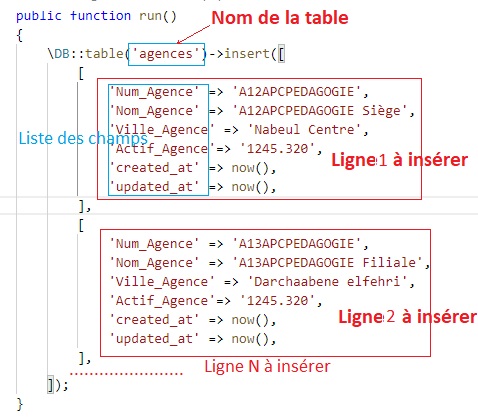

* The attributes that are mass assignable. 4 times 0 I try that display the parameter argument in the address for my products. This technique requires Mass Assignment to be set up, either using the fillable or guarded properties to dictate which fields may be passed into the create call.įor this example the following would work (as a property of the User class): /** This returns the User for the specified email if found, otherwise creates and returns a new user with the combined array of email, firstName, and lastName. The Eloquent collection object extends Laravels base collection, so it naturally inherits dozens of methods used to fluently work with the underlying array of Eloquent models. All you need to do is create your database using any database client, define the schemas and. If the model cannot be found in the database, a record will be inserted with the attributes resulting from merging the first array argument with the optional second array argument. In Laravel Eloquent, you dont need to write any SQL queries.
Laravel eloquent find or create update#
The firstOrCreate method will attempt to locate a database record using the given column / value pairs. use latest with first in laravel eloquent laravel find by laravel create search eloquent whereRaw larave with using where laravel create or update eloquesnt or where laravel update Or Create laravel laravel create or update laravel query builder select first Laravel eloquent upserts laravel model where where mayor que laravel. It's explained in the documentation as follows: If you can just use the arguments to immediately create a new model instance in the database without modifying it, you can use firstOrCreate().Īs of Laravel 5.3 it's possible to do this in one step with firstOrCreate using a second optional values parameter used only if a new record is created, and not for the initial search. setting a name or some mandatory field), you should use firstOrNew(). If you want to modify the model instance before it is saved for the first time (e.g. It can use to perform all the database operations in your. Otherwise it will give you the matched item.Ĭhoosing between one or the other depends on what you want to do. In Laravel, the database query builder provides an easy way to create and run database queries.

firstOrNew() will give you a new model instance to work with if not match was found, but will only be saved to the database when you explicitly do so (calling save() on the model).Otherwise it will give you the matched item. firstOrCreate() will automatically create a new entry in the database if there is not match found.The difference between firstOrCreate() and firstOrNew():
Laravel eloquent find or create code#
This will return the first item that matches, or create a new one if not matches are found. 3 Answers Sorted by: 97 Your code looks fine, but there are a couple of things to be aware of: Post::find (id) acts upon the primary key, if you have set your primary key in your model to something other than id by doing: protected primaryKey 'slug' then find will search by that key instead. You can extract code to blade components, and there’s autocompletion for those components. For Laravel artisans, we added Blade support via Laravel’s template engine. If you only want to check on a specific field, then use firstOrCreate() with only one item in the array. Syntax Highlighting in Blade PhpStorm already offers powerful syntax highlighting for different constructs and syntax errors right out of the box. I Know I can achieve this using laravel collection map and group by ,but I prefer using a single query.


If not all arguments match, then a new instance of the model will be created. I want to find the total sells of Individual Product and then sum sells of each product while fetching categories. Laravel eloquent query methods example In this tutorial, you will learn laravel eloquents methods like where, whereDate, whereRaw, whereMonth, whereYear, whereIn, whereNotIn, whereNull, whereNotNull, whereTime, havingRaw, whereBetween, whereNotBetween and laravel pluck.FirstOrCreate() checks for all the arguments to be present before it finds a match.


 0 kommentar(er)
0 kommentar(er)
